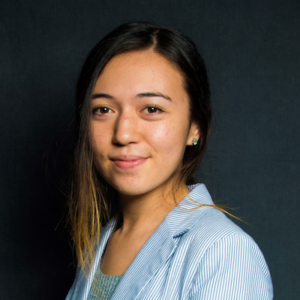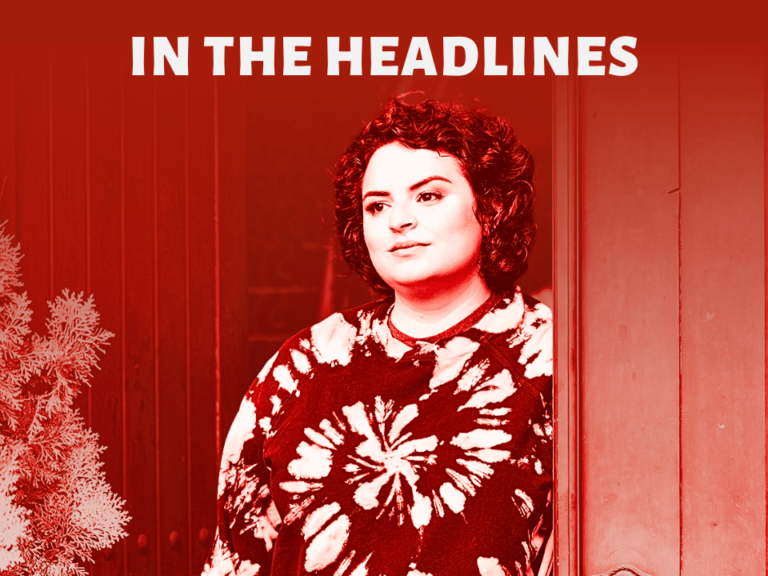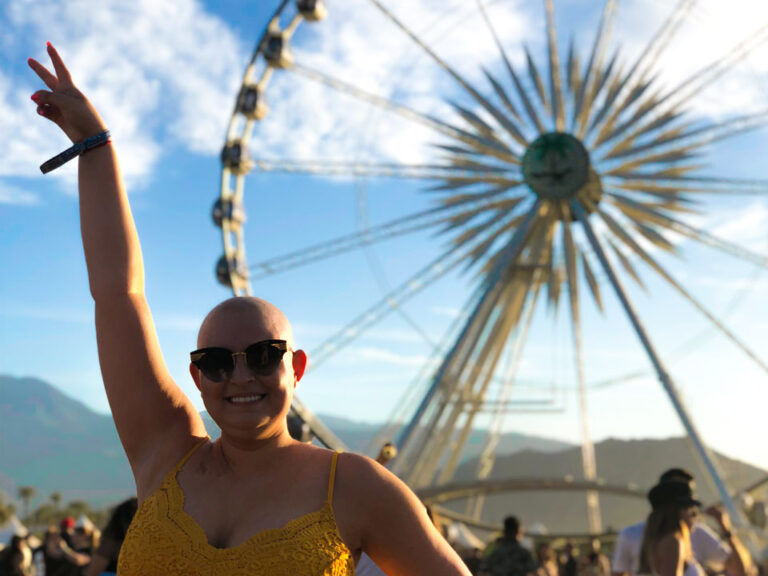Earlier this year, amid efforts by the Trump administration to reduce the federal workforce, Lakshmi Grama decided to take early retirement from NCI.
“Retiring from my position at NCI a couple of years earlier than I had planned has been tough,” Grama, former associate director of dissemination and digital communications at NCI, said to The Cancer Letter. “It has been even more challenging to do so at a time when the products and services I committed my professional career to—Cancer.gov, PDQ [Physician Data Query], and Cancer Information Service—are now at risk of being discontinued.”
Grama, along with five former NIH and FDA employees who abruptly left the jobs they would have kept for years into the future have found themselves looking for books and podcasts that have the capacity to either (a) help make sense of events taking place in today’s America, or (b) help find escape from said events, or (c) both.
Some, like Grama, took early retirement, leaving on own their terms. “I was getting uncomfortable being part of the work that needed to be done,” Grama said. “Unfortunately within a few months, my entire team got laid off, so I guess in some ways I left on my own terms.”
Others have pursued career directions they did not fully expect. Still others are looking for new opportunities.
Grama has stayed connected to cancer advocacy and “the amazing community of communications professionals” who have come to support one another,” she said. She was finally able to address the library of unread books that had been piling up.
“Of course, it’s nice to be able to have more time to do the things on your list,” said Grama. “I’ve had a chance to read, which is really wonderful.”
This year, in the annual Summer Reading Issue, The Cancer Letter catches up with people whose careers at NIH and FDA ended early.
We received fiction recommendations—from literary novels to epic fantasy adventures—exploring all things outside of cancer research and policy. We have several public health recommendations from readers who decided to look directly into the abyss—stories that brought on a deepened understanding of their time in public service.
The world changes, yes, but the pleasure of reading remains… Aboard a red-eye flight under the tiny beam of a reading light, outside in the shade with the dog cuddled nearby, inside a screened porch with a cup of coffee in hand.
The 2025 Summer Reading List
Lakshmi Grama
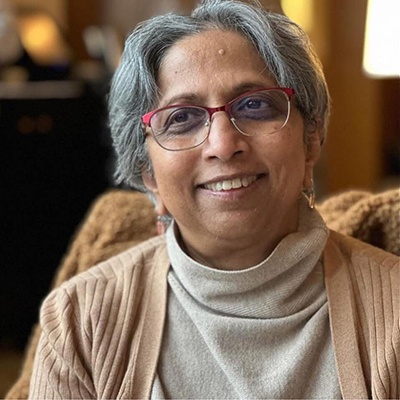

Associate Director,
National Cancer Institute
- “Together: The Healing Power of Human Connection in a Sometimes Lonely World,” by Vivek H. Murthy, MD
- “The Anatomy of Deception: Conspiracy Theories, Distrust, and Public Health in America,” by Sara E. Gorman
- “Heart Lamp,” by Banu Mushtaq
Lakshmi Grama recommends a book she suspects most of The Cancer Letter’s readers haven’t yet come across.
Winner of the 2025 International Booker Prizer, “Heart Lamp” is a collection of often overlooked stories about women in traditional Muslim households. Grama read the translation from Kannada, a language mostly spoken in Southwestern India and her parent’s primary language.
“It’s a wonderful book, I love short stories,” Grama said. “I was so delighted to be able to read a wonderful English translation of the stories that empathetically capture the trials and tribulations of Muslim women in South India.”
But Grama also had to include some public health crowd favorites.
“The Anatomy of Deception,” which explores the connection between medical mistrust and shifts to right-wing ideologies in the U.S., deeply resonated with her and the work she dedicated her career to.
“I come from a social media, communications [background],” Grama said. “We sort of have a tendency to blame [social media] for a lot of what’s going on. But it’s much deeper. There are fundamental structural problems with our healthcare system. When people don’t feel they have a stake in it or are being kept out, that exacerbates this sense of mistrust that people have in the system.”
Kimryn Rathmell
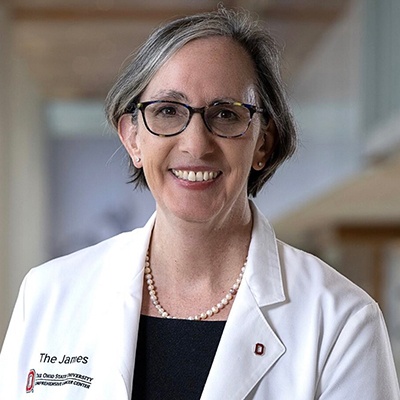

Director,
National Cancer Institute
Now:
CEO,
The Ohio State University Comprehensive Cancer Center – Arthur G. James Cancer Hospital and Richard J. Solove Research Institute,
Jeri B. Block and Robert H. Schottenstein Distinguished Chair in Cancer,
The Ohio State University College of Medicine
- “From Strength to Strength: Finding Success, Happiness, and Deep Purpose in the Second Half of Life,” by Arthur C. Brooks
- “The Second Mountain: The Quest for a Moral Life,” by David Brooks
- “The Art of Learning: An Inner Journey to Optimal Performance,” by Josh Waitzkin
After Kimryn Rathmell stepped down as NCI director at the end of January, she began writing a column called “17 and Onward” for The Cancer Letter.
“I find peace in journaling. I had never fully considered doing so in open letters to the amazing cancer research community,” Rathmell said to The Cancer Letter.
She called the column “a love letter of sorts” to the field of cancer, in which she offered advice, words of encouragement, and shared personal stories of her own life.
“One letter put into a few words the impact of my father’s suicide [and] clearly touched many facing professional turmoil. I was moved to see how offering that vulnerability created and deepened relationships in ways I could not have expected,” Rathmell said. “This column taught me that it is our connections to each other, to the community, and to the mission that is the secret sauce.”
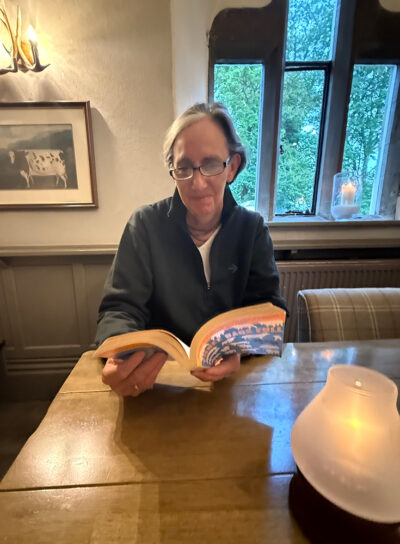

All of these books ask the reader to assess distinct life transitions and to welcome the different skills that develop and the ways in which our past experience can inform a new stage.
Kimryn Rathmell
Her book recommendation “The Second Mountain” draws many parallels to the power of vulnerability and building human relationships. Rathmell said that individual success and career ambition are inarguably valued in oncology, but cancer research also provides opportunities to build community—an essential piece in the quest for a meaningful life, according to Brooks.
“Our society places great focus on personal ambition and career success and Brooks posits that beyond these societal achievements—which are valuable in giving us experience, wisdom, insight, and authority,” Rathmell said. “But there are further levels of success unlocked by the building of deep relationships, by giving of ourselves in service of others, and commitments to causes that are bigger than ourselves.”
Rathmell said all her recommendations are good reads for former federal workers who are forced to pivot.
“All of these books ask the reader to assess distinct life transitions and to welcome the different skills that develop and the ways in which our past experience can inform a new stage,” she said. “That the new stage can be wholly different and even more beautiful and rewarding.”
Peter F. Garrett
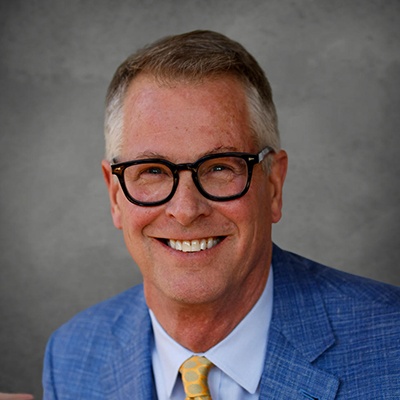

Director, Center for External Affairs,
National Cancer Institute
Now:
Founder and executive director,
Patient Action for Cancer Research
- “The Scottish Enlightenment: The Scots’ Invention of the Modern World,” by Arthur Herman
Peter F. Garrett was reminded of “The Scottish Enlightenment” while wandering the cobblestone backalleys of Edinburgh this summer. What started off as a venue for a destination wedding then became the meeting place for a confluence of thoughts that had been bubbling beneath the surface for some time.
“When you’re in Edinburgh walking down the street, you see these statues of David Hume and Adam Smith,” said Garrett.
The ethos of these Scottish philosophers are a great influence to Garrett.
“I was struck by (how) the Scottish Enlightenment basically changed the world in some really important ways—they had a belief in evidence over ideology. That really fueled the Enlightenment worldwide. They also saw science and ethics as needing to work together in order to improve the human condition, (and) wrote in a way that connected with people.”
This evidence-based organizing principle feels challenged at this crossroads of U.S. history, as the new presidential administration puts NIH research grants on hold and makes unilateral policy changes, Garrett said.
“When I looked at the newspaper this morning and I saw the decision by RFK Jr. to cut $500 million in mRNA vaccine research, it seemed like the opposite of what everything that the Enlightenment stood for,” Garrett said on Wednesday. “Because [the FDA’s] decision wasn’t based on evidence or any kind of public accountability. It was strictly ideological. It was opaque. If we just turn our back on this work, like Kennedy is suggesting we must do, it really sends a dangerous message that politics is going to be what dictates—not science, not evidence.”
Since NCI, Garrett has shifted his focus to Patient Action for Cancer Research, a patient advocacy organi
I think the Enlightenment taught us that truth isn’t just handed down. It’s tested, it’s challenged, and it’s earned.zation he founded that aims to restore federal funding for cancer research by centering patient stories in policy conversations.
Peter F. Garrett
Garrett says this is his way of acting in the spirit of the Scottish Enlightenment writers.
“I think the Enlightenment taught us that truth isn’t just handed down. It’s tested, it’s challenged, and it’s earned.,” Garrett said. “That means you’ve got to include patients in the conversations about science and science policy. That’s what we’re fighting for.”
Honorable mentions:
- “The Prophet Song,” by Paul Lynch
- “A Little Life,” by Hanya Yanagihara
- “The House of Doors,” by Tan Twan Eng
- “The Four Seasons,” a TV show created by Tina Fey, Lang Fisher, and Tracey Wigfield
- “Too Much,” a TV show created by Lena Dunham and Luis Felber, starring Megan Stalter and Will Sharpe
John Burklow
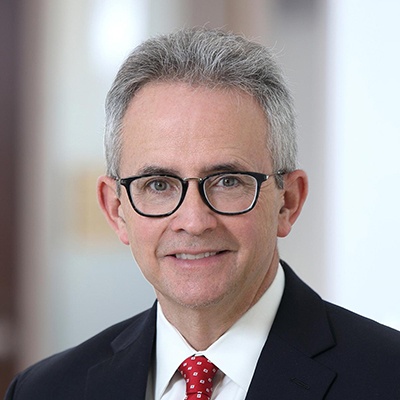

Chief of staff,
National Institutes of Health
- “Disease Knows No Politics,” by Dr. Elias Zerhouni with Edward Kriz
- “Outlive: The Science and Art of Longevity,” by Peter Attia, MD with Bill Gifford
John Burklow says “Disease Knows No Politics”deepened his respect for a former colleague.
Burklow spent part of his39 years at NIH with Elias Zerhouni, who served as NIH director from 2002 to 2008. Burklow worked alongside Zerhouni every single day during those six years—boarding planes and trains, discussing communications strategies for how to talk to the press, and sharing meals. Reading Zerhouni’s autobiography revealed to Burklow the limits of knowing somebody in a professional environment.
“I got to know him pretty well. I worked with him every day. I felt we got close over the years,” Burklow said to The Cancer Letter. “But even after doing that, reading about his childhood was really striking. The book begins with his family being threatened with assassination and having to move immediately during the night. That kind of sticks with you.”
When Zerhouni eventually left his home country of Algeria, life obstacles persisted for him.
“The challenges he faced, he didn’t speak English,” Burklow reflected. “He somehow learned English to take the exams to become a resident at Johns Hopkins and (later) became chief resident, then became a vice dean before the NIH director. All the challenges he faced—and [he] kept his integrity.”
Beyond Burklow’s reflections on his career focused on public health at NIH, he’s also been thinking about his own health.
I got to know [Elias Zerhouni] pretty well. I worked with him every day. I felt we got close over the years. But even after doing that, reading about his childhood was really striking.
John Burklow
“I’m 65 years old, I’m interested in a longer health span,” he said.
“Outlive: The Science and Art of Longevity”doesn’t tell us anything particularly new, Burklow said, but the scientific approach to these Health Education 101 lessons makes it a compelling read.
“Of course, everybody knows exercise is good for you, but he really lays out a very specific argument for exercise,” Burklow said. “Especially if somebody wants evidence and the scientific rationale.
“It’s not like I had to be persuaded, but I am encouraged. I’m encouraged to do the things I know I’m supposed to do.”
Burklow spends much of his time getting his steps in and going on walks in Rock Creek Park. He may soon take up strength training.
Daniel Edelman
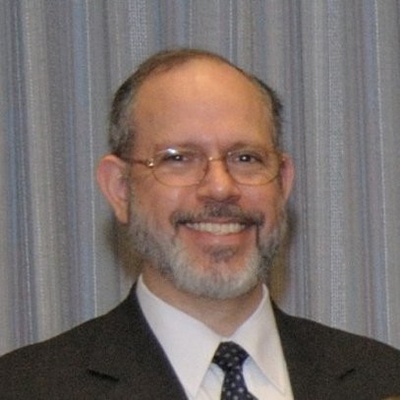

Program officer,
National Cancer Institute
- “The Lord of the Rings,” by J.R.R. Tolkien
Edelman has been reading (and rereading) the “Lord of the Rings” trilogy for the past 50 years—each return to the books offering something new.
“Rereading with new life experiences makes each read fresh and informative,” Edelman said to The Cancer Letter.
Jill S. Barnholtz-Sloan
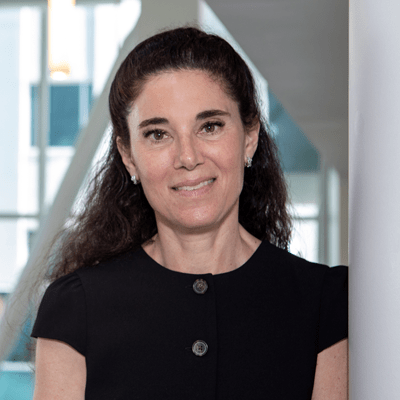

Acting director and associate director for informatics and data science,
Center for Biomedical Informatics and Information Technology,
Senior investigator,
Division of Cancer Epidemiology and Genetics Trans-Divisional Research Program,
National Cancer Institute
Now:
Chief administrative officer,
Associate director for research administration,
Winship Cancer Institute,
Emory University
- “Demon Copperhead,” by Barbara Kingsolver
Barnholtz-Sloan would listen to “Demon Copperhead” on audiobook on early morning walks with her dog before the Atlanta heat set in and the concrete could burnherlabrador retriever’s paws. The 2023 Pulitzer Prize winner for fiction was a summer pick in her local book club.
Caption
“I love it when the audio reader does accents that are appropriate for the material and also changes voices for different characters,” Barnholtz-Sloan said of the audiobook.
The story, which chronicles the impact of the opioid epidemic in Appalachian Virginia, grew so intense in some moments that she had to take a pause. But when she returned, Barnholtz-Sloan thought about the book’s connection to cancer care.
“I have a friend right now who is very sick with cancer,” she said. “In order to control her pain, she’s having to take many of these types of drugs. Even though we know that these drugs have a very high addictive component, we’re still using these drugs as tools to help cancer patients.”
She came away with a deeper understanding of the safeguards that are standard to the healthcare system today.
“All physicians now have to be very careful with prescribing the drugs,” said Barnholtz-Sloan. “It’s all tracked now at the national level. But what the book shows is what was happening at the beginning and the fact that they were prescribed just all the time without oversight.”
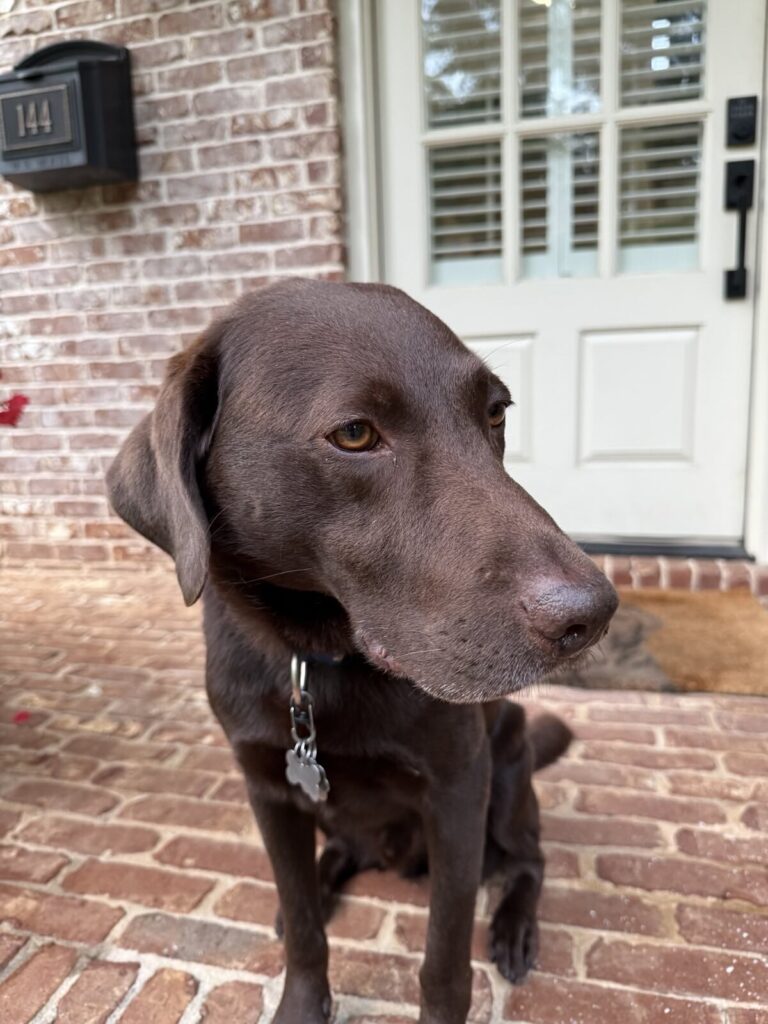

Even though we know that these drugs have a very high addictive component, we’re still using these drugs as tools to help cancer patients.
Jill Barnholtz-Sloan
Anonymous former FDA oncology employee
- “Fire Escape” podcast, by Anna Sussman
In this year’s only podcast recommendation, a former FDA employee recommends “Fire Escape.”
Said the employee:
This is an incredible story of one woman’s journey of learning to be a firefighter during her time in incarceration and then the challenges she faced after she was released.
We listened to those podcast as a family and thoroughly enjoyed it and would recommend it highly!


